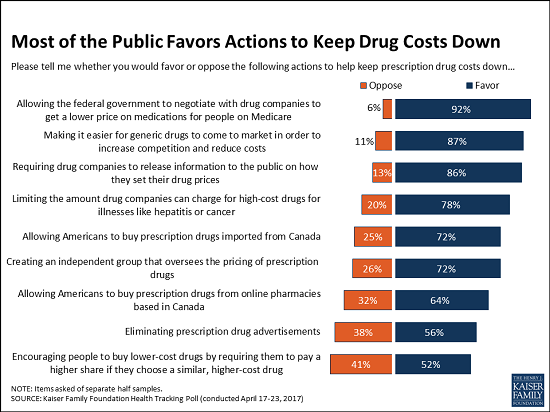 The out-of-pocket price of many life-saving cancer
medications continues to grow, while insurance companies continue to raise
deductibles and copays. Patients, who are paying more for their prescriptions
than ever before, need solutions that offer cost-effective treatment.
The out-of-pocket price of many life-saving cancer
medications continues to grow, while insurance companies continue to raise
deductibles and copays. Patients, who are paying more for their prescriptions
than ever before, need solutions that offer cost-effective treatment.
April 20, 2017--Cancer remains the second leading cause of
death in the United States, and more often than ever before, patients are
feeling the financial burden of obtaining potentially life-saving cancer drugs.
Newer cancer medications can cost patients over $100,000 each year, and it’s
not uncommon for patients to spend an average of $8,700 each month on the
medications they need to fight the disease.
Drug costs are skyrocketing as many insurance companies raise
deductibles and copayments, forcing many patients to pay more out-of-pocket for
the medications that could save their lives. In response, companies such as NuView Life Sciences are
calling for drug cost solutions that give patients a more affordable way to
receive the treatment they need.
Only 50 years ago, it was common for new anticancer drugs to
cost an average of $100 each month, but now many patients regularly pay close
to $10,000 every month.
Many
patients—especially those under age 65 with no access to Medicare or
high-deductible insurance plans—simply cannot afford these drugs.
Due to financial concerns, 32% of individuals recently
diagnosed with cancer and 28% of individuals with a past history of cancer ask
their doctors for lower-cost medications.
Unfortunately for some patients, some lower-cost cancer
medications simply slow the progression of cancer rather than providing
effective, disease-halting treatment.
Lower-cost drugs, such as those that are off-brand or generic,
can also come with a range of possible side effects the patient might
experience, from no effect at all to death.
Paul Crowe, CEO of NuView Life Sciences, said, “We’re
experiencing a healthcare crisis in which patients are diagnosed with a
potentially deadly disease and offered a treatment option, only to find out
they can’t afford the treatment.
“ This financial stress can be extremely demoralizing at a
time when it’s crucial that the patient is in the right state of mind to fight
the disease. These patients need solutions when it comes to paying for the
medications that could save their lives.”
Companies like NuView are at the forefront of the movement to
find better, more cost-effective solutions that enable patients to achieve the
best possible outcomes from treatment. In the future, NuView hopes its NV-VPAC1
technology platform could be used to deliver targeted, highly-effective
anticancer drugs directly to cancer cells.
There is also some push to take the production of anticancer
medications out of the hands of the pharmaceutical industry. In attempts to
curb the rising costs of these drugs, some hospitals are beginning to purchase
cancer medications collectively.
Additionally, physicians
and other professionals are calling for a review of the way many cancer drugs
are packaged.
Some cancer drugs come in vials that contain more medication
than the patient actually needs. Even though leftover medication must often be
discarded for safety reasons, the prices of these drugs have not fallen to
reflect the amount of medication wasted. It’s estimated that up to $2.8 billion
is wasted every year simply because of the way cancer drugs are packaged.
Crowe said, “If we can find different ways to provide patients
with much-needed anticancer drugs that are more affordable and ensure the
patient receives proper care, we would be doing patients across the world a
disservice by choosing not to explore those options.
“Companies and drug manufacturers must take the initiative to
find ways to lower the cost of these medications while giving patients the
life-saving treatments they need.”
About NuView Life Sciences:
Founded in 2005, NuView Life Sciences is a biotechnology
company located in Park City, Utah, working to improve the way cancer is
diagnosed and treated in our modern healthcare system. NuView is focused on
creating precision cancer diagnostics and therapeutics to improve patient
outcomes while reducing healthcare costs through the development and clinical
application of its exclusive peptide analog technology, NV-VPAC1. Led by a team
of industry experts with decades of combined experience in healthcare and
medical imaging technologies, NuView is poised to change how we look for and
respond to cancer. To learn more about NuView Life Sciences, please visit http://nuviewinfo.com/site/3/.


